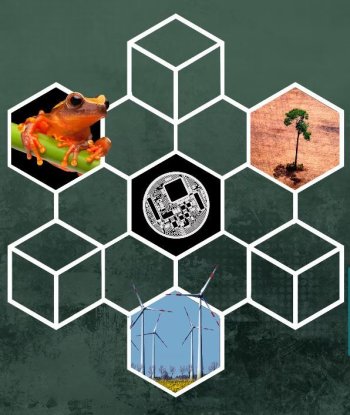Last year, a British oil exploration company and a tech start-up joined forces on a project to permanently lock away untapped fossil fuel reserves in Greenland.
The idea was simple: the energy company, Greenland Gas and Oil, would not extract oil from an area on the east coast that it had exploration licenses for. Instead it would monetize keeping the oil in the ground via a partnership with the tech company, Carbon base, which works on offsetting carbon emissions.
The mechanics were more complex. The partnership aimed to sell NFTs, digital collectibles that come with ownership certificates, linked to the unexplored land. The profits would then be used in part to compensate the energy company and the oil would stay underground. And, since the Greenland government had stopped issuing new exploration licenses, the energy company would not be able to simply apply for another and tap a different part of the country.
The pitch to buyers was that they could be sure their NFT investment was doing some environmental good. The tokens would also be paired with a new type of “non-production” carbon credit the venture hoped to develop, which owners could use to compensate for their own emissions.
Please use the sharing tools found via the share button at the top or side of articles. Copying articles to share with others is a breach of FT.com T&Cs and Copyright Policy. Email [email protected] to buy additional rights. Subscribers may share up to 10 or 20 articles per month using the gift article service. More information can be found here. https://www.ft.com/content/1f795e5d-c2cf-4e91-89f1-6d5544a8a3db But, after months of discussions, the partnership ran into problems. Carbon base and Greenland Gas and Oil did not agree on how to structure the joint venture. Carbon base also discovered that the country of Greenland had never successfully produced any oil, a fact that they said undermined the whole idea. Pursuing the project “would have destroyed our public reputation” and looked like “greenwashing”, says Max Song, founder of Carbon base.
Continue reading: https://www.ft.com/content/1f795e5d-c2cf-4e91-89f1-6d5544a8a3db
The idea was simple: the energy company, Greenland Gas and Oil, would not extract oil from an area on the east coast that it had exploration licenses for. Instead it would monetize keeping the oil in the ground via a partnership with the tech company, Carbon base, which works on offsetting carbon emissions.
The mechanics were more complex. The partnership aimed to sell NFTs, digital collectibles that come with ownership certificates, linked to the unexplored land. The profits would then be used in part to compensate the energy company and the oil would stay underground. And, since the Greenland government had stopped issuing new exploration licenses, the energy company would not be able to simply apply for another and tap a different part of the country.
The pitch to buyers was that they could be sure their NFT investment was doing some environmental good. The tokens would also be paired with a new type of “non-production” carbon credit the venture hoped to develop, which owners could use to compensate for their own emissions.
Please use the sharing tools found via the share button at the top or side of articles. Copying articles to share with others is a breach of FT.com T&Cs and Copyright Policy. Email [email protected] to buy additional rights. Subscribers may share up to 10 or 20 articles per month using the gift article service. More information can be found here. https://www.ft.com/content/1f795e5d-c2cf-4e91-89f1-6d5544a8a3db But, after months of discussions, the partnership ran into problems. Carbon base and Greenland Gas and Oil did not agree on how to structure the joint venture. Carbon base also discovered that the country of Greenland had never successfully produced any oil, a fact that they said undermined the whole idea. Pursuing the project “would have destroyed our public reputation” and looked like “greenwashing”, says Max Song, founder of Carbon base.
Continue reading: https://www.ft.com/content/1f795e5d-c2cf-4e91-89f1-6d5544a8a3db

